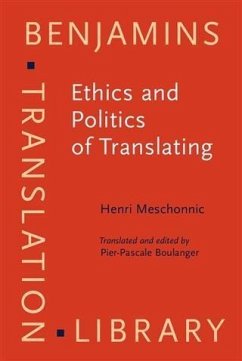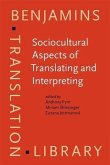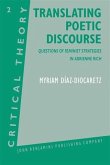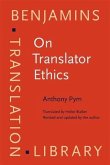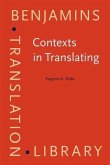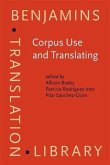What if meaning were the last thing that mattered in language? In this essay, Henri Meschonnic explains what it means to translate the sense of language and how to do it. In a radical stand against a hermeneutical approach based on the dualistic view of the linguistic sign and against its separation into a meaningful signified and a meaningless signifier, Henri Meschonnic argues for a poetics of translating. Because texts generate meaning through their power of expression, to translate ethically involves listening to the various rhythms that characterize them: prosodic, consonantal or vocalic patterns, syntactical structures, sentence length and punctuation, among other discursive means. However, as the book illustrates, such an endeavour goes against the grain and, more precisely, against a 2500-year-old tradition in the case of biblical translation. The inability of translators to give ear to rhythm in language results from a culturally transmitted deafness. Henri Meschonnic decries the generalized unwillingness to remedy this cultural condition and discusses the political implications for the subject of discourse.
Dieser Download kann aus rechtlichen Gründen nur mit Rechnungsadresse in A, B, BG, CY, CZ, D, DK, EW, E, FIN, F, GR, HR, H, IRL, I, LT, L, LR, M, NL, PL, P, R, S, SLO, SK ausgeliefert werden.

